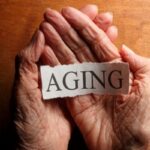Have you ever found yourself endlessly scrolling through social media, losing track of time, and feeling an unexplainable need to check your phone constantly? Well, you’re not alone. Social media addiction is a growing concern in today’s digital age, affecting millions of people worldwide. But don’t worry, there’s hope! This article dives into the ins and outs of social media addiction treatment, providing you with the tools and knowledge to regain control over your life.
Understanding Social Media Addiction
What Is Social Media Addiction?
Social media addiction is a behavioral addiction characterized by excessive concern with social media, an uncontrollable urge to log on or use social media, and devoting so much time and effort to social media that it impairs other important life areas. Like other forms of addiction, social media addiction involves a psychological dependence on social media platforms, leading to negative consequences in personal and professional life.
Signs and Symptoms
- Constant Checking: An irresistible urge to check social media accounts frequently.
- Neglecting Responsibilities: Ignoring work, school, or family obligations in favor of social media.
- Mood Changes: Feeling anxious, depressed, or irritable when not using social media.
- Escapism: Using social media to escape from real-life problems or negative emotions.
- Interference with Daily Life: Social media usage interfering with daily activities and relationships.
Causes of Social Media Addiction
Psychological Factors
- FOMO (Fear of Missing Out): The anxiety that an exciting or interesting event may currently be happening elsewhere, often aroused by posts seen on social media.
- Validation Seeking: The need for social approval and validation through likes, comments, and shares.
- Instant Gratification: The immediate reward mechanism of social media, which provides quick and easy access to positive reinforcement.
Social and Environmental Factors
- Peer Pressure: The influence of friends and family who are also heavy social media users.
- Accessibility: The easy access to social media through smartphones and other devices.
- Marketing Strategies: The deliberate design of social media platforms to keep users engaged and returning for more.
Effective Social Media Addiction Treatment
Setting Realistic Goals
Start by setting clear, realistic goals for reducing your social media usage. This can include specific time limits, such as only using social media for 30 minutes a day or checking your accounts at designated times.
Digital Detox
A digital detox involves taking a break from all digital devices, including social media. This can help you break the cycle of addiction and regain control over your time and attention.
Building Healthy Habits
Replace social media usage with healthier activities, such as exercising, reading, or spending time with loved ones. Developing new hobbies and interests can help reduce the urge to use social media.
Seeking Professional Help
If your social media addiction is severe, consider seeking help from a mental health professional. Cognitive-behavioral therapy (CBT) is particularly effective in treating behavioral addictions, including social media addiction.
Tips for Reducing Social Media Usage
- Turn Off Notifications: Disable social media notifications to reduce distractions and interruptions.
- Set App Limits: Use app limit features available on most smartphones to restrict your social media usage.
- Schedule Social Media Time: Designate specific times of the day for checking social media, and stick to these times.
- Unfollow and Unsubscribe: Reduce the number of accounts you follow to minimize your feed and lessen the temptation to scroll endlessly.
- Find Alternatives: Engage in offline activities that bring you joy and fulfillment.
FAQs
What is social media addiction treatment?
Social media addiction treatment involves various strategies and techniques designed to help individuals reduce their dependence on social media. This can include setting usage limits, undergoing digital detoxes, building healthier habits, and seeking professional help.
How do I know if I’m addicted to social media?
Common signs of social media addiction include constantly checking your phone, neglecting responsibilities, experiencing mood changes when not using social media, using social media as an escape, and having it interfere with daily life.
Can social media addiction be cured?
While social media addiction can be challenging to overcome, it is possible to regain control with the right strategies and support. Treatment focuses on reducing usage and developing healthier habits rather than completely eliminating social media from your life.
What are some effective social media addiction treatment methods?
Effective treatment methods include setting realistic goals, undergoing digital detoxes, building healthy habits, and seeking professional help, such as cognitive-behavioral therapy.
How can I reduce my social media usage?
You can reduce your social media usage by turning off notifications, setting app limits, scheduling social media time, unfollowing unnecessary accounts, and finding alternative activities to engage in.
Summary
Social media addiction is a pressing issue that can significantly impact your mental health, relationships, and overall quality of life. By understanding the signs and causes of social media addiction and implementing effective treatment strategies, you can regain control and lead a healthier, more balanced life. Remember, the journey to overcoming addiction starts with small, manageable steps, and seeking support from professionals can make a world of difference.
Authoritative Links Related to Social Media Addiction Treatment
- www.psychologytoday.com/us/basics/social-media-addiction
- www.mayoclinic.org/diseases-conditions/behavioral-addictions/symptoms-causes/syc-20470207
- www.verywellmind.com/social-media-addiction-4157289
- www.helpguide.org/articles/addictions/social-media-and-internet-addiction.htm
- www.healthline.com/health/social-media-addiction
By following the tips and strategies outlined in this article, you’ll be well on your way to overcoming social media addiction and reclaiming control over your life.





